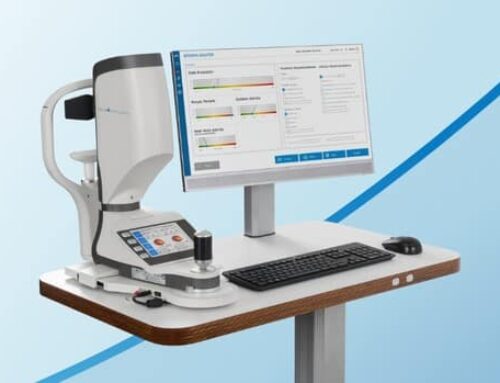At Mainline, it’s our mission to improve access to diabetic retinal screening.
My name is Joe Scott. I’m a passionate advocate of improving public health; I believe that both the uptake of the latest technology and proper patient education is the key to improving access to screening for diseases such as diabetic retinopathy.
This passion was sparked during my work as a Diabetic Screener Grader, and as a council member for the British Association of Retinal Screeners, which is where I developed a deep understanding of the importance of early detection in managing diabetes.
There’s a distinct lack of equality when it comes to screening, with age, poor education around diabetes or an inability to travel being three of the biggest contributors to screening inequality. Many people who need to be screened simply are not being seen – this needs to change.
In my role as Mainline’s Retinal Product Specialist, I am advocating for the use of new technology to be introduced into the world of screening to ensure that everyone has access to screening, regardless of obstacles that may have previously hindered them attending.
Join me on this mission to promote awareness and enhance the patient access of those at risk of sight loss through diabetes.
What can we do to help?
As you well know, early detection of diabetic retinopathy is crucial, which makes it evermore frustrating for both myself and the Mainline team, as the equipment needed to properly screen in the community exists and is available, it is not ‘approved’.
Unless the guidelines for cameras are altered, nothing will change. This is why it’s essential that we continue to demonstrate why ease of access to new technology is so critical, especially for patients who may not otherwise be able to attend a clinic or access screening.
There are two key pieces of equipment that we’re pushing for approval: the Optomed Aurora IQ Handheld Fundus Camera and the iCare EIDON AF Confocal Scanner.
Yes, we understand that we, as a business, stand to benefit from approval, however, I personally have seen the impact these devices can have in the community; we’re pushing for approval because we’ve seen firsthand the difference they can make.
Here’s what this tech can do, and why we believe guidelines for cameras need to change:
The Optomed Aurora IQ Handheld Fundus Camera
This handheld fundus camera is, possibly, the most exciting development when it comes to screening for diabetic eye disease.
One of the main reasons that people are not screened is that they cannot attend screenings. They might be homebound or unable to travel for a myriad of reasons.
The Optomed Aurora IQ allows for a level of care in the community that has hitherto not been possible. As it is handheld, it can be taken to the patient, rather than the patient needing to travel to a clinic.
This is an opportunity to take high-quality imagery and conduct full diabetic retinopathy screening without the patient needing to leave the house – it is truly game changing, and we feel that it should be a mainstay of any care in the community workforce.
The iCare EIDON AF Confocal Scanner
While this confocal scanner has all the features you’d expect, it can also be used for diabetic eye disease screening. This is far more efficient, and allows you to eliminate the need for a separate screening, ensuring that no signs of diabetic eye disease slip through the cracks.
It also has a fully automatic mode, allowing any staff member to run diagnostic tests, helping improve your workflow and ensuring patients get processed in a timely manner.
Last (but by no means least), the EIDON works without patients needing dilation drops. Generally speaking, this can help to improve patient uptake, especially as dilation drops have become notorious in recent years!
What guidelines need to change?
Currently, in order for an instrument to become approved, it requires external fixation, and both a chin and headrest.
We’re trying to get these guidelines changed, as removing the need for the above immediately opens up a wide variety of tech for approval, tech that’s desperately needed.
It’s our mission to demonstrate the power of these instruments, showing how they make a difference to the roughly 3.8 million people living in England with diabetes.
Diabetic eye disease screening should be widespread; there should never be an obstacle that stops people from getting tested.
We believe that it’s incredibly important to get this message out there. That’s why we’re asking that, if you’ve read this far, that you share this blog and its important message onto your social channels.
We’ll only be able to enact change by getting more people involved in this conversation.







